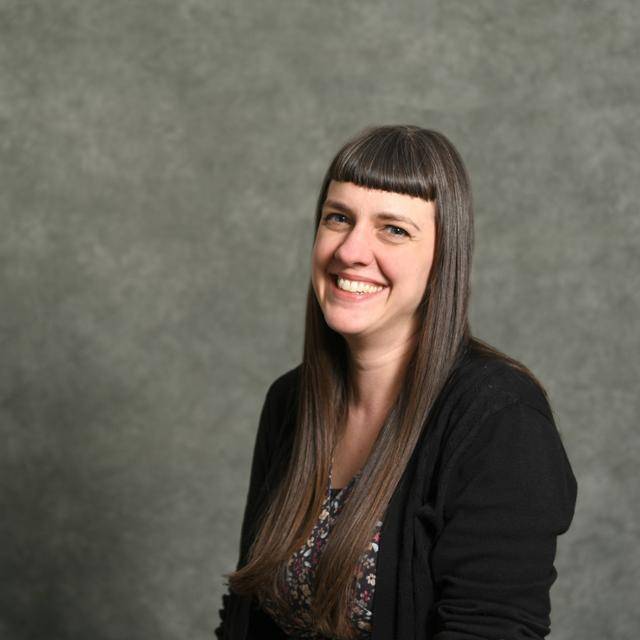Contact Information
Biography
I am an Associate Professor of Psychology, Director of Undergraduate Programs, Undergraduate Internship Coordinator, and Graduate Teaching Mentor in the Department of Psychology at Duquesne University. I graduated with my B.A. in Psychology from Rutgers University and earned my M.A. and Ph.D. in Clinical Psychology from Miami University (Ohio). My education and training were theoretically pluralistic, and I am lucky to have learned from psychological traditions such as those rooted in feminism, postmodernism, archetypal psychology, and psychoanalysis.
My primary research and theoretical interests include qualitative inquiry, gender, and sexual experiences/violence. I am fascinated by research methodology and my work has explored epistemological questions such as: How can we know?, What can we know?, and How can research help us understand the experiences of others? I have a particular interest and expertise in poetic inquiry and feminist qualitative research (especially The Listening Guide), and seek to engage in research that amplifies the voices of underrepresented groups and individuals. I also engage in research and administrative work with the goal of working towards equity for students and faculty/staff who are members of underrepresented groups, with a focus on gender equity.
I mentor both graduate and undergraduate student research, and particularly enjoy working with students who are seeking to engage in creative and novel qualitative research. I include student co-authors on my publications and presentations whenever possible. In addition to working with students on their independent projects, I typically teach the first-year graduate seminar Introduction to Qualitative and Interpretative Research and the courses Supervised Teaching of Psychology I and II. At the undergraduate level, I typically teach Internship in Psychology and Orientation to the Psychology Major. I have also taught undergraduate sections of Research Methods in Psychology and Psychology of Personality here at Duquesne.
I am a licensed psychologist in the state of Pennsylvania, and while I am not actively engaged in clinical work at this time, I provide clinical supervision for graduate students in our doctoral program. My supervision style is process oriented, and it developed in tandem with my training in interpersonal psychotherapy (from the psychoanalytic tradition). I also have an interest in archetypal psychology and encourage my supervisees to explore metaphor, dreams, and other aspects of the imaginal in their clinical work.
Expertise
• Qualitative Inquiry
• Poetic Inquiry
• Feminist Psychology
• Gender
Education
Ph.D., Clinical Psychology, Miami University, 2008M.A., Clinical Psychology, Miami University, 2004
B.A., Psychology, Rutgers University, 2001
Profile Information
Undergraduate courses have included:
- Orientation to the Psychology Major
- Research Methods in Psychology
- Psychology of Personality
- Psychology of Social and Cultural Diversity
- Senior Integrative Projects
Graduate Courses
Introduction to Qualitative Research
Publications
(Only recent publications are listed - a list of faculty publications prior to 2010
can be found here)
Bennett, E., Koelsch, L., King Ash, S., & Kuppers, S. (2020). "#wetoo: Feminist self-disclosure in a #metoo era," Conditional acceptance to Women & Therapy.
Koelsch, L. E., Goldberg, S. G., & Bennett, E. (2020). "Am I telling the story right?" Poetry, community, and trauma. The Qualitative Report, 25 (6), 1540-1554.
Koelsch, L. E. (2018). Reconceptualizing the Member Check Interview. International Journal of Qualitative Methods.
Koelsch, L. E., Goldberg, S. G. & Bennett, E. (2017). Listening for home: Urban women's experiences in an uprooted community. The Humanistic Psychologist, 45(4), 367-384.
Koelsch, L. E. (2016). The use of I poems to better understand complex subjectivities. In Kathleen T. Galvin & Monica Prendergast (Eds.), Poetic Inquiry II: Seeing, Understanding, Caring (pp. 169-180). Rotterdam, Netherlands: Sense Publishers.
Koelsch, L. E. (2016). Using poetry to understand complex subjectivities (pp. 169-180). In K. Galvin & M. Prendergast (Eds.), Poetic inquiry II: Seeing, understanding, caring. Rotterdam: Sense Publishers.
Koelsch, L. E. (2015). I poems: Evoking self. Qualitative Psychology, 2(1), 96-107. http://psycnet.apa.org/index.cfm?fa=search.displayrecord&uid=2015-05650-006
Koelsch, L. E. (2014). Pathological conversations: A review of Semantic Polarities and Psychopathologies in the Family. Journal of Constructivist Psychology. doi: 10.1080/10720537.2014.903216
Koelsch, L. E. (2014). Sexual discourses and the absence of agency, Women & Language,
37(2), 11-29.
Koelsch, L.E. (2013). Reconceptualizing the member check interview. International Journal of Qualitative Methods, 12, 168-179. http://ejournals.library.ualberta.ca/index.php/IJQM/index
Walsh, R. & Koelsch, L.E. (2012). Building across fault lines in qualitative research. The Humanistic Psychologist, 40(4), 380-390. http://www.tandfonline.com/doi/abs/10.1080/08873267.2012.724260#.VZ64RflVhBc
Koelsch, L.E. (2012). The virtual patchwork quilt: A qualitative feminist research method. Qualitative Inquiry, 18(10), 823-829. http://qix.sagepub.com/
Koelsch, L.E., Brown, A.L., & Boisen, L.* (2012). Bystander perceptions: Implications for university sexual assault prevention programs. Violence and Victims, 27(4) 823-829.
*graduate student


